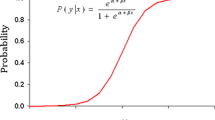Abstract
This study proposes a novel approach that integrates the qualitative approach, the quantitative approach, and fuzzy set theory for developing a framework of critical managerial competences of electronic commerce (EC) professional managers. The approach combines a focus group, a fuzzy Delphi method and the Fuzzy Analytic Hierarchy Process (Fuzzy AHP) for identifying competences via experts’ opinions and questionnaires for developing the framework of managerial EC professional managers. Comparing the competences of traditional managers and EC managers reveals main differences in the emphasis on EC manager professional skills. Furthermore, competency weights for EC managers lie particularly in domain knowledge and information management skills. Research results reveal that our proposed EC competence framework not only help firms in selecting/hiring high quality EC professional managers more objectively, but also in evaluating the performance of EC managers.
Similar content being viewed by others
References
Acock A.C., Clarke H.D.: Alternative measures of political efficacy: models and means. Qual. Quan. 24(1), 87–105 (1990)
Belton V., Gear A.E.: The legitimacy of rank reversal—a comment. Omega 13(3), 227–230 (1985)
Bomze I., Gutjahr W.: Estimating qualifications in a self-evaluating group. Qual. Quan. 29(3), 241–250 (1995)
Buckley J.J.: Fuzzy hierarchical analysis. Fuzzy Sets Syst. 17, 233–247 (1985)
Buckley J.J., Feuring T., Hayashi Y.: Fuzzy hierarchical analysis revisited. Eur. J. Oper. Res. 129, 48–64 (2001)
Buscema M., Terzi S., Maurelli G., Capriotti M., Carlei V.: The smart library architecture of an orientation portal. Qual. Quan. 40(6), 911–933 (2006)
Chang, Y.L.: A study of developing an evaluation tool for managerial competence and reliability and validity analysis. In: A Research Report of National Science Council (in Chinese) (1998)
Chang P.T., Huang L.C., Lin H.J.: The fuzzy Delphi method via fuzzy statistics and membership function fitting and an application to the human resources. Fuzzy Sets Syst. 112(3), 511–520 (2000)
Chuang, C.C.: Developing Managerial Competencies Assessment Scale-A Case Study in High-Tech Firm. Master Thesis, National Central University (in Chinese) (1997)
Chung, P.T.: A Research on Hi-Tech Industry Managerial Competencies Resources Channel. Master Thesis, National Central University (in Chinese) (1998)
Fiedler F.E.: A Theory of Leadership Effectiveness. McGraw-Hill Series in Management, New York (1967)
Gattell R.B.: Personality pinned down. Psychol. Today 7, 40–46 (1973)
Guglieliemino P.J.: Developing the top-level executive for the 1980’s and beyond. Train. Dev. 33(4), 12–14 (1979)
Holman D., Hall L.: Competence in management development: rites and wrongs. British J. Manag. 7(2), 191–202 (1996)
House R.J.: A path goal theory of leader effectiveness. Adm. Sci. Q. 16(3), 321–339 (1971)
Hsieh, C.C.: A Prototype of Expert System for Evaluating Managerial Competence: An Example of a High-technology Company. Master Thesis, National Central University (in Chinese) (1998)
Huang L.C., Chang P.T., Lin H.J.: The fuzzy managerial talent assessment model: a pilot study. Pan Pac. Manag. Rev. 1(1), 71–83 (1997)
Huang, L.-C., Wu, P., Jaw, B.-S., Wu, Y.-H. A study of applying fuzzy analytic hierarchy process on managementtalent evaluation model. In: Joint 9th FSA World Congress and 20th NAFIPS International Conference, vol. 3, July 25–28, 1484–1488 (2001)
Ishikawa A., Amagasa M., Shiga T., Tomizawa G., Tatsuta R., Mieno H.: The Max-Min Delphi method and fuzzy Delphi method via fuzzy integration. Fuzzy Sets Syst. 55(3), 241–253 (1993)
Katz R.L.: Skills of an effective administrator. Harv. Bus. Rev. 33, 33–42 (1995)
Laarhoven P.J.M., Pedrycz W.: A fuzzy extension of Saaty’s priority theory. Fuzzy Sets Syst. 11(3), 229–241 (1983)
Lee E.S., Li R.L.: Comparison of fuzzy numbers based on the probability measure of fuzzy events. Comput. Math. Appl. 15, 87–96 (1988)
Lin, H.J.: Applying Fuzzy Theory to An Assessment Model of Managerial Talent. Master Thesis, I-Shou University (1996)
Mansfield R.S.: Building competency models: approaches for HR professionals. Hum. Resour. Manag. 35(1), 7–18 (1996)
Maslow A.H.: Motivation and Personality. 3rd edn. HarperCollins Publishers, New York (1987)
McClelland D.C.: Testing for competence rather than for “Intelligence”. Am. Psychol. 28(1), 1–14 (1973)
Mon D.-L., Cheng C.-H., Lin J.-C.: Evaluating weapon system using fuzzy analytic hierarchy process based on entropy weight. Fuzzy Sets Syst. 62(2), 127–134 (1994)
Parry S.B.: Just what is a competency? (And why should you care?). Training 35(6), 58–64 (1996)
Ritter T., Gemunden H.G.: The impact of a company’s business strategy on its technological competence, network competence and innovation success. J. Bus. Res. 57, 548–556 (2004)
Robbins S.P.: Organizational Behavior: Concepts, Controversies, Applications. Prentice Hall, Englewood Cliffs (1997)
Saaty T.L.: Decision Making for Leaders: The Analytic Hierarchy Process for Decisions in a Complex World, New Edition 2001, 3rd edn. RWS Publications, Pittsburgh (1999)
Sanchez R.: Understanding competence-based management Identifying and managing five modes of competence. J. Bus. Res. 57(5), 518–532 (2004)
Spencer S.M.: Competence at Work: Models for Superior Performance. Wiley, New York (1993)
Tschirky H., Escher J.-P., Tokdemir D., Belz C.: Technology marketing: a new core competence of technology-intensive enterprises. Int. J. Technol. Manag. 20(3–4), 459–474 (2000)
Tschirky H., Koruna S.M., Lichtenthaler E.: Technology marketing: a firm’s core competence?. Int. J. Technol. Manag. 27(2–3), 115–122 (2004)
Turley R.T., Bieman J.M.: Competencies of exceptional and nonexceptional software engineers. J. Syst. Softw. 28(1), 19–35 (1995)
Tzeng G.-H., Teng J.-Y.: Transportation investment project selection with fuzzy multiobjectives. Transp. Plann. Technol. 17(2), 91–112 (1993)
Van Loo J., Semeijn J.: Defining and measuring competences: an application to graduate surveys. Qual. Quan. 38, 331–349 (2004)
Wu F.S.: Evaluation and selection for manager. Pers. Mon. (in Chinese) 17(3), 21–43 (1993)
Wu F.G., Lee Y.J., Lin M.C.: Using the fuzzy analytic hierarchy process on optimum spatial allocation. Int. J. Ind. Ergon. 33(6), 553–569 (2004)
Yeung A.K.: Competencies for human resource professionals: an interview with Richard E. Boyatzis. Hum. Resour. Manag. 35(1), 119–131 (1996)
Author information
Authors and Affiliations
Corresponding author
Rights and permissions
About this article
Cite this article
Wu, CH., Fang, WC. Combining the Fuzzy Analytic Hierarchy Process and the fuzzy Delphi method for developing critical competences of electronic commerce professional managers. Qual Quant 45, 751–768 (2011). https://doi.org/10.1007/s11135-010-9425-6
Published:
Issue Date:
DOI: https://doi.org/10.1007/s11135-010-9425-6




